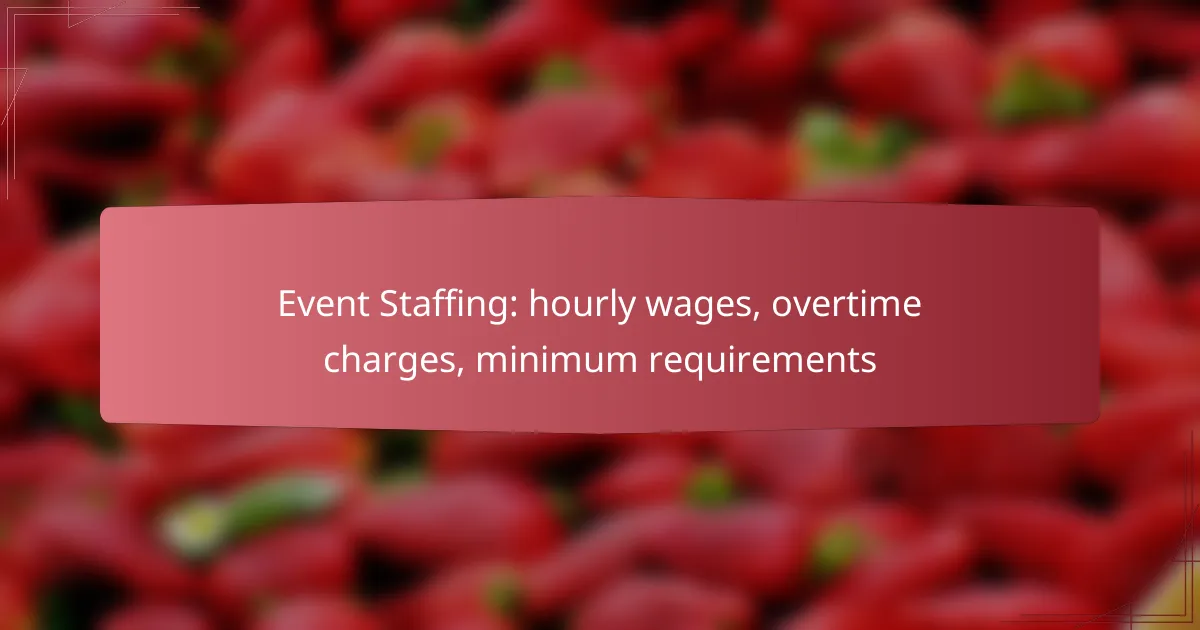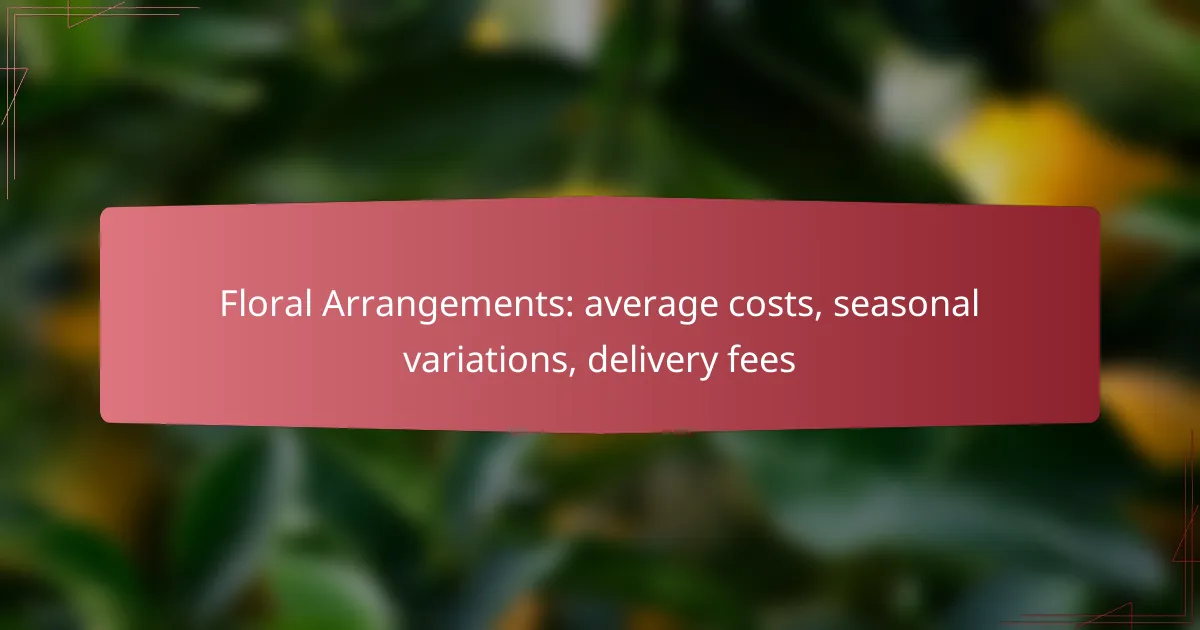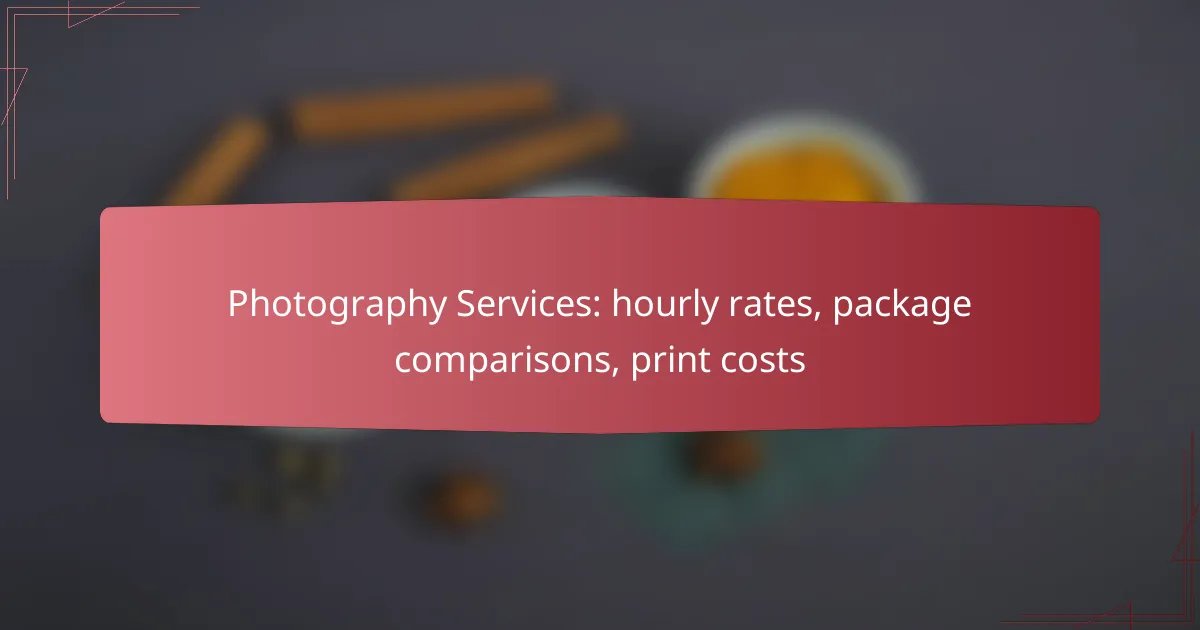Event staffing in London involves a range of hourly wages, typically between £10 and £20, influenced by factors such as role, experience, and event type. Overtime charges may apply when staff exceed their contracted hours, varying by employer policies. Additionally, meeting minimum requirements, including qualifications and permits, is crucial for compliance and smooth event operations.
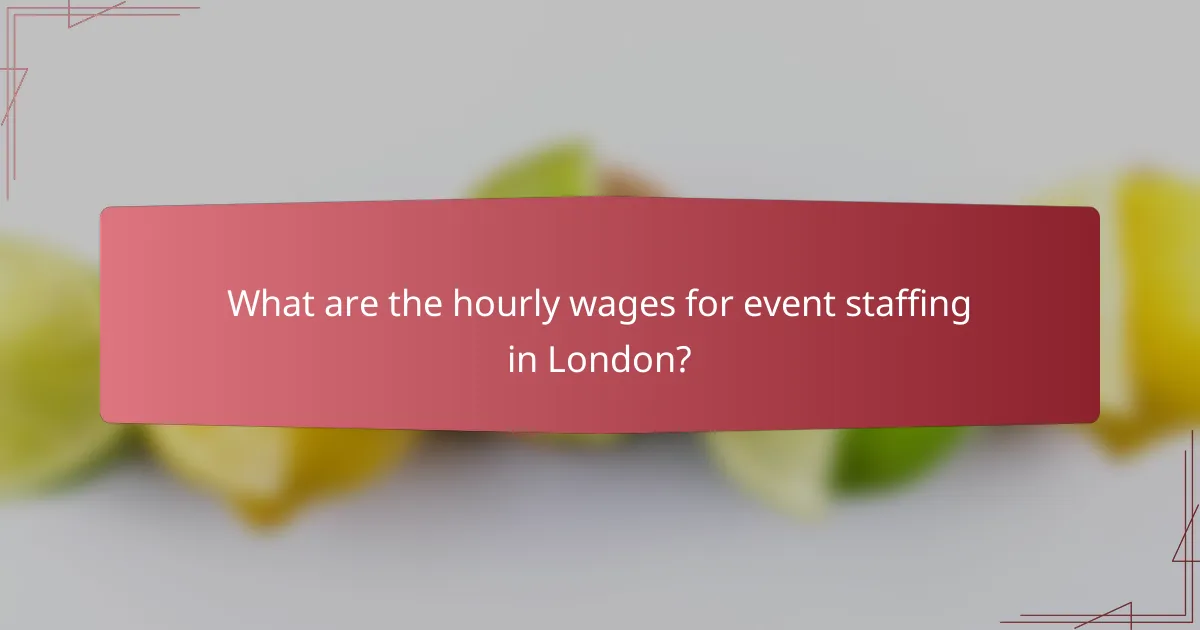
What are the hourly wages for event staffing in London?
The hourly wages for event staffing in London typically range from £10 to £20, depending on the role and experience level. Factors such as the type of event, the staff’s responsibilities, and the time of year can influence these rates significantly.
Average hourly wage for event staff
The average hourly wage for event staff in London generally falls between £12 and £15. More specialized roles, such as event coordinators or security personnel, can command higher rates, often reaching up to £20 or more per hour. Entry-level positions may start closer to the minimum wage, around £10 per hour.
Factors affecting hourly wages
Another factor is the type of event; corporate events or high-profile functions typically offer better compensation compared to smaller, private gatherings. Employers may also adjust wages based on the location within London, as some areas may have a higher cost of living.
Comparison with other UK cities
In comparison to other UK cities, London tends to offer higher hourly wages for event staffing. For example, cities like Manchester or Birmingham may see average rates ranging from £9 to £14 per hour. This difference is largely attributed to London’s higher living costs and the concentration of large-scale events.
However, cities such as Edinburgh or Bristol are becoming competitive, with wages gradually increasing as the demand for event staff rises. It’s essential for job seekers to consider both the wage and the cost of living when evaluating opportunities across different cities.

What are the overtime charges for event staff in the UK?
Overtime charges for event staff in the UK typically apply when employees work beyond their contracted hours. These charges can vary based on the employer’s policies and the specific agreements made with the staff.
Standard overtime rates
In the UK, standard overtime rates often start at 1.5 times the employee’s regular hourly wage. For example, if a staff member earns £10 per hour, their overtime rate would be approximately £15 per hour. Some employers may offer higher rates for weekends or public holidays, sometimes reaching double the standard rate.
It’s essential to clarify overtime rates in the employment contract or agreement to avoid misunderstandings. Always check with the employer for specific policies regarding overtime pay.
Legal requirements for overtime pay
In the UK, there is no statutory obligation for employers to pay overtime; however, if it is included in the employment contract, it must be honored. The minimum wage laws still apply, meaning that even for overtime hours, employees should receive at least the National Minimum Wage or National Living Wage, depending on their age.
Employers should maintain clear records of hours worked to ensure compliance with any agreed-upon overtime pay. Staff should be informed of their rights regarding overtime to ensure fair treatment and payment.

What are the minimum requirements for event staffing in London?
The minimum requirements for event staffing in London include specific qualifications, licensing, and permits that ensure staff are capable and compliant with local regulations. Understanding these requirements is essential for event organizers to ensure a smooth and legally compliant operation.
Qualifications for event staff
Event staff in London typically need to possess relevant qualifications that align with their roles. For instance, security personnel often require SIA (Security Industry Authority) licenses, while catering staff may need food hygiene certifications. Additionally, customer service skills and experience in event management can be beneficial.
Employers should look for candidates with a proven track record in similar roles, as well as strong communication skills. This ensures that staff can effectively engage with attendees and manage any issues that arise during events.
Licensing and permits needed
In London, various licenses and permits may be required depending on the nature of the event. For example, if alcohol is to be served, a Temporary Event Notice (TEN) must be obtained from the local council. This notice allows the event to operate legally under specific conditions.
Additionally, venues may have their own requirements for permits, especially for large gatherings or events that involve amplified music. It is crucial for event organizers to check with both the venue and local authorities to ensure all necessary licenses are secured well in advance.
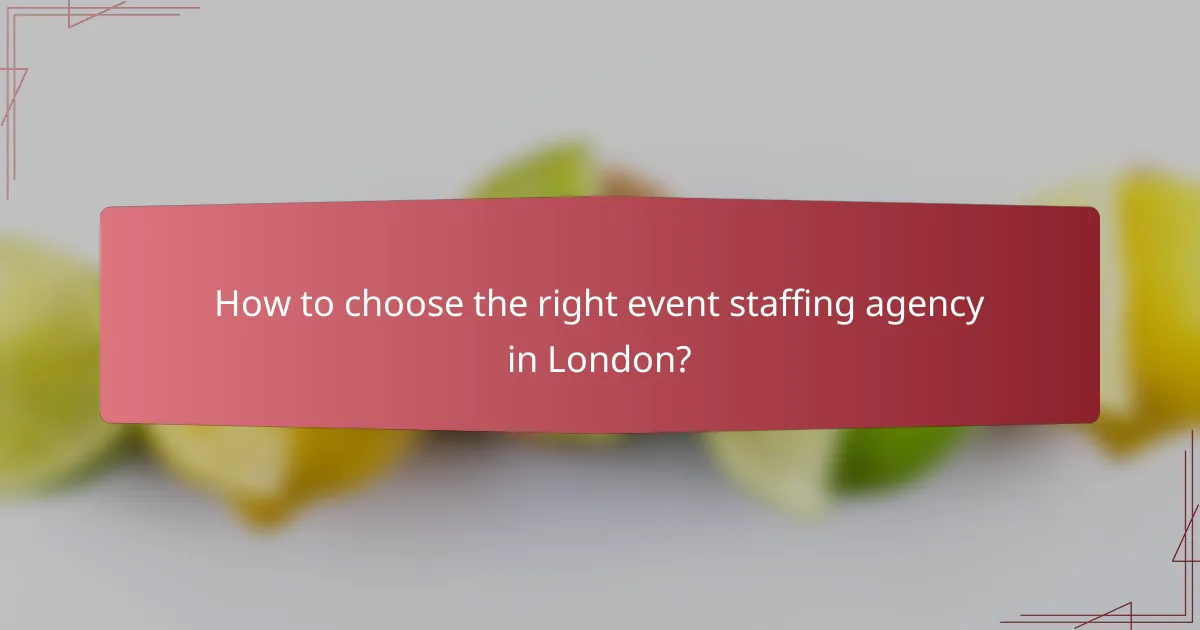
How to choose the right event staffing agency in London?
Selecting the right event staffing agency in London involves assessing their experience, reliability, and the specific services they offer. Prioritize agencies that understand your event’s unique requirements and can provide suitable staff efficiently.
Criteria for selecting an agency
When choosing an event staffing agency, consider their reputation, client reviews, and the range of services they provide. Look for agencies that specialize in your type of event, whether it’s corporate, social, or large-scale festivals.
Additionally, evaluate their staffing options, including the availability of trained personnel and their ability to meet last-minute requests. Ensure they comply with local labor laws and regulations to avoid potential issues.
Top event staffing agencies in London
Some of the leading event staffing agencies in London include Staff Heroes, Event Staffing, and Blue Arrow. These agencies are known for their professionalism and extensive networks of qualified staff.
Each agency offers different pricing structures, typically ranging from £10 to £20 per hour for standard staff, with additional charges for specialized roles or overtime. It’s advisable to compare their services and rates to find the best fit for your event’s budget and needs.

What are the trends in event staffing for 2024?
In 2024, event staffing is increasingly influenced by technology and evolving demands due to the post-pandemic landscape. Companies are focusing on efficiency, flexibility, and the integration of new tools to enhance the staffing process.
Emerging technologies in event staffing
Technological advancements are reshaping event staffing, with platforms that streamline hiring and management processes. Tools like AI-driven scheduling software and mobile apps for real-time communication are becoming standard, allowing for quicker adjustments and better coordination among staff.
Additionally, virtual reality (VR) and augmented reality (AR) are being explored for training purposes, enabling staff to familiarize themselves with event layouts and procedures before the actual event. This can lead to improved performance and reduced onboarding time.
Shifts in staffing demands post-pandemic
The pandemic has led to a notable shift in staffing requirements, with a growing emphasis on flexibility and adaptability. Many events now require hybrid staffing solutions, where personnel must be skilled in both in-person and virtual engagement techniques.
Moreover, there is an increased demand for specialized roles, such as health and safety officers, to ensure compliance with ongoing health regulations. Event organizers are advised to assess their specific needs and adjust their staffing strategies accordingly to meet these new expectations.
